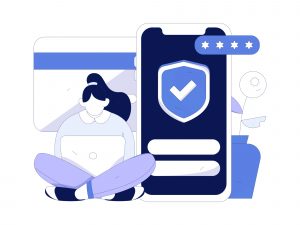
Written by Hui Wen Tong (PSYCHOLOGIST, THERAPIST) | Mar 20, 2024
In recent years, the landscape of therapy and counselling has evolved significantly, with the emergence of virtual sessions offering convenient and accessible avenues for client engagement. However, as therapists embrace this digital shift, it becomes imperative to prioritize clients’ safety and confidentiality through robust online practices.
Whether conducting sessions via our platform, messaging apps, or email exchanges, therapists must adhere to guidelines to safeguard the therapeutic process and clients’ privacy. Here, we present comprehensive recommendations tailored specifically for therapists, psychologists, counsellors, and mental health professionals engaged in virtual sessions.

Obtain Informed Consent
Before initiating virtual sessions, obtain explicit informed consent from clients regarding the use of online platforms, potential risks, and limitations of virtual therapy. Provide clear explanations regarding data security measures and reassure clients about confidentiality protocols.
Establish Boundaries and Expectations
Clearly define boundaries and expectations for virtual sessions, including guidelines for communication outside of scheduled sessions, appropriate behaviour during sessions, and emergency procedures. Encourage clients to create a private, quiet session space to minimize interruptions and maintain confidentiality.
Secure Technology and Internet Connection
To mitigate security risks, regularly update software and antivirus programs. Use secure, password-protected Wi-Fi networks and avoid conducting sessions on public or unsecured networks. Encourage clients to do the same to protect their personal information.
Address Technology Issues
Prepare for potential technology-related issues by familiarizing yourself with troubleshooting techniques for common problems such as audio or video disruptions. Have alternative communication methods in place in case of technical difficulties during sessions. Feel free to contact us whenever you encounter a technical issue on our platform.
By adhering to these guidelines, therapists can confidently navigate the virtual therapy landscape, prioritising their clients’ safety, confidentiality, and well-being. As the digital landscape continues to evolve, maintaining a proactive approach to online security and privacy is essential in upholding the integrity of the therapeutic process.




